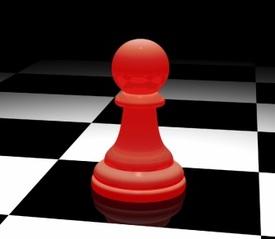Gain Muscle while losing weight? McMaster University
Options

Poisonedpawn78
Posts: 1,145 Member
So I found an article that is about a year old, Its from a study done at McMaster University in Canada where they put 40 university aged men through a program that appears to have the gain muscle while losing weight result.
The study: AJCN research
The program they were doing were focusing on heavy resistance compound exercises while having 240g of protein per day. The control group was taking 120g per day. 4 days of the heavy resistance followed by 2 days of interval training.
Average starting weight was 220lbs men with 25% body fat. “These were big guys so normally their daily intake is about 4,000 calories a day,” Phillips said. For the month-long plan, they were only eating about 2,200 to 2,300 calories.
4000 calories is Dwayne "the rock" johnson territory. The Dr also said that the program was designed as a boot camp style program and not meant to be long term. Most of the people were fed up with it by the time the study finished.
The group on a high protein diet lost 10.5 pounds of fat and gained 2.5 pounds of muscle. The low protein group, on the other hand, managed to only preserve their muscle mass, but lost seven pounds of fat.
Overall, the group lost about 12 to 15 pounds in total when factoring in water weight.
@AnvilHead any thoughts? would love to know what you think of it.
The study: AJCN research
The program they were doing were focusing on heavy resistance compound exercises while having 240g of protein per day. The control group was taking 120g per day. 4 days of the heavy resistance followed by 2 days of interval training.
Average starting weight was 220lbs men with 25% body fat. “These were big guys so normally their daily intake is about 4,000 calories a day,” Phillips said. For the month-long plan, they were only eating about 2,200 to 2,300 calories.
4000 calories is Dwayne "the rock" johnson territory. The Dr also said that the program was designed as a boot camp style program and not meant to be long term. Most of the people were fed up with it by the time the study finished.
The group on a high protein diet lost 10.5 pounds of fat and gained 2.5 pounds of muscle. The low protein group, on the other hand, managed to only preserve their muscle mass, but lost seven pounds of fat.
Overall, the group lost about 12 to 15 pounds in total when factoring in water weight.
@AnvilHead any thoughts? would love to know what you think of it.
0
Replies
-
Lean body mass does not necessarily have to be muscle.0
-
Per Dr Phillips, the study was more designed to see if a particular study model worked (I forget the exact term), so there is some caution about using it as a guideline.
But, yes, this was pretty revealing and potentially expands our understanding about what is possible. I shared this study in the forums when it was first published.
I think it suggests that increased protein intake can offset some of the potentially negative aspects of higher calorie deficits. (loss of muscle mass)
While this study also included high levels of exercise, the effects of higher protein intake might also be applicable to those who for whatever reason cannot exercise but want to sustain a more aggressive calorie deficit.
Stuart Phillips is a quality researcher and his lab puts out good stuff. Definitely worth following on Twitter @mackinprof1 -
Like mentioned, lean body mass is not muscle mass, though they are often confused. Aside from that the "can't gain muscle while in a calorie deficit" thing is mostly for people with very little body fat. Even then it isn't 100% true, just more true? People with a little or a lot of fat are fine, the body uses the stored energy for DUN DUN DUN energy. On a side note, this is also the variable that can cause strength training to burn more calories than cardio for many people. Your body uses energy to heal muscle, so every time you weight train while in a calorie deficit your body is burning calories for 24-48 hours because of it. The combination, of course, is always best for total health, however, for those with limited time who want the best results for fat loss and body composition, weights > cardio.0
-
While true, I'm not sure why everyone is pointing out lean body mass encompasses more than muscle as if to try and discredit the ability to build it in this study? It's not like they built organ, tendons and bone mass. And why would only the high protein group gain "water"?4
-
While true, I'm not sure why everyone is pointing out lean body mass encompasses more than muscle as if to try and discredit the ability to build it in this study? It's not like they built organ, tendons and bone mass. And why would only the high protein group gain "water"?
Body composition cannot be measured accurately or consistently without biopsy's all these studies have to be taken with a broad overview. Regarding the high protein group: my guess is as good as yours.
With over 1000 calorie deficit, even with drugs people aren't building appreciable amounts of muscle.0 -
@rybo.
Agreed, the higher your body fat the more likely you are to be able to add some muscle while losing fat.
Since about 35% of the population is carrying too much extra fat it may matter to them.
Me personally? Not even a little, except I could dream about it, I guess.
Sounds to me like some people may just want to try to make more excuses.
Trying to imply it was water weight for just one group is disingenuous at best.1 -
trigden1991 wrote: »While true, I'm not sure why everyone is pointing out lean body mass encompasses more than muscle as if to try and discredit the ability to build it in this study? It's not like they built organ, tendons and bone mass. And why would only the high protein group gain "water"?
Body composition cannot be measured accurately or consistently without biopsy's all these studies have to be taken with a broad overview. Regarding the high protein group: my guess is as good as yours.
With over 1000 calorie deficit, even with drugs people aren't building appreciable amounts of muscle.
2.5 lbs in a month isnt a good amount of muscle?0 -
When male test subjects are around 25% body fat they are not in an absolute "1000 calorie deficit"; they are pulling from those fat stores to make up for the lowered CI.trigden1991 wrote: »With over 1000 calorie deficit, even with drugs people aren't building appreciable amounts of muscle.
It is diminishing returns of course but that is a different discussion.
That is the whole point: 2.5lbs of additional muscle a month without drugs is great.
1 -
My thoughts:
1) It appears to have been a well-conducted study. Parameters were controlled about as optimally as possible short of putting the subjects in a metabolic ward.
2) The pool of participants were ideal candidates for LBM/muscle gain while in a deficit - young, overweight males who had not previously strength trained. You couldn't ask for a more textbook group for "newbie gains".
3) While body composition isn't a perfect science, the combination of methods used were reasonable enough to determine changes over the time of the study.
4) All in all, I don't find the results surprising. Phillips took a group ideally suited for LBM gain while in a deficit and put them on an optimal diet/workout program which was pretty tightly controlled and consistently adhered to - much more so than in most free-living individuals. The subjects were overweight (BMI >25 in all subjects), so they had a good bodily reserve to draw from despite the relatively large calorie deficit.
IMO, the study pretty much shows what we already knew: that strength training and adequate protein intake are muscle-sparing and will help improve body composition, and that "newbie gains" are quite possible even while in a caloric deficit with a good, consistent diet/training routine.
I'd be willing to bet that if a similar study was done with different parameters (i.e., say, older subjects at a healthy BMI and 12% - 15% bodyfat who had been strength training for a year or more prior to the study), the results would look considerably different. The "newbie gains" wouldn't come into play and they'd have a much smaller bodily reserve to draw from. But overall, the takeaway is that overweight people trying to lose weight should engage in a well-designed strength training program and adequate protein intake for best results in body composition.6 -
As I mentioned earlier, this was not meant to be a definitive study (almost none are).
What they were looking at was whether the supposed "muscle losing" effect of a combination of vigorous exercise and high calorie deficit could be offset with a substantial increase in protein intake. The results speak for themselves.
It's always a good idea to challenge accepted "dogma". What this study does is expand our understanding of what occurs physically during weight loss. It allows for more nuanced explanations instead of just repeating the same cliches over and over.1 -
I asked James Fell about this, and he says you can gain muscle in a deficit.
As I understand it:
You make up the energy deficit from body fat, and;
build the muscle from food/protein intake.0
This discussion has been closed.
Categories
- All Categories
- 1.4M Health, Wellness and Goals
- 396.6K Introduce Yourself
- 44.2K Getting Started
- 260.8K Health and Weight Loss
- 176.3K Food and Nutrition
- 47.6K Recipes
- 232.8K Fitness and Exercise
- 449 Sleep, Mindfulness and Overall Wellness
- 6.5K Goal: Maintaining Weight
- 8.7K Goal: Gaining Weight and Body Building
- 153.3K Motivation and Support
- 8.3K Challenges
- 1.3K Debate Club
- 96.5K Chit-Chat
- 2.6K Fun and Games
- 4.5K MyFitnessPal Information
- 16 News and Announcements
- 18 MyFitnessPal Academy
- 1.4K Feature Suggestions and Ideas
- 3K MyFitnessPal Tech Support Questions





